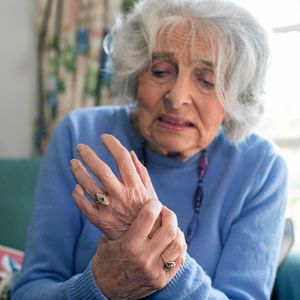
DISEASE pain, otherwise termed neuropathy, is a serious condition needing great effort by a carer in keeping the afflicted person from becoming overwhelmed.
It’s often connected with gradual deterioration of organs and tissues that results in failing function generally. Almost one in 10 Australians experience this debilitating condition.
Sensations connected with disease pain are numbness of affected organs or limbs, tingling or burning feelings on the skin, shooting pain, pain triggered by being touched or during general movement.
Treatment of disease pain in traditional naturopathy includes manual therapy, psychotherapy, phytotherapy and nutrition. Manual therapy aims at correcting abnormal bands of fibrous tissue that have caused digestive organs or muscles to join together and result in functional disturbances.
Psychotherapy objectives the naturopathic way involve imagery education on lessening disease pain through creating mental sensations to soothe the condition. Phytotherapy makes use of herbal medicine to endeavour slowing disease progression as well as diminishing pain intensity. Naturopathic nutrition is an exacting traditional method intending to reverse tissue damage as much as possible. This method stimulates the body’s own healing forces into cleansing and repairing activity.
If disease pain has progressed into damage for too long, the best that can be done is slowing disease pain intensity. Under these unfortunate circumstances it’s likely the sufferer may need palliative medical intervention to suppress the pain severity.
Medical drugs prescribed to reduce disease pain may include opioids, some antidepressants, anticonvulsants and possibly other drugs such as serotonin and norepinephrine reuptake inhibitors to perhaps reduce nerve pathway function. Another option to medical GPs is pain cream or pain patches.
The appearance of multiple organ and musculoskeletal impairments are given serious consideration in naturopathic practice, particularly with liver involvement. Alcohol consumption must be avoided otherwise disease progression may go unchecked.
If liver failure is associated with disease pain your prescribing naturopath or GP may need to prescribe a pain cream to reduce the affliction.
A particular cream of choice medically is Capsaicin cream, which is a pungent chemical compound found in chillies. Traditional naturopathy knows cayenne is a pain reliever that also dilates blood vessel walls when used cautiously.
A novel approach by clinical aromatherapist Lyn Lewis is her pain relief cream using Australian natives, showing meaningful results for most sufferers. She attributes its benefit to her specifically blended ratio of active ingredients.
Peter Lewis, registered naturopath practitioner,
healthoptions.com.au